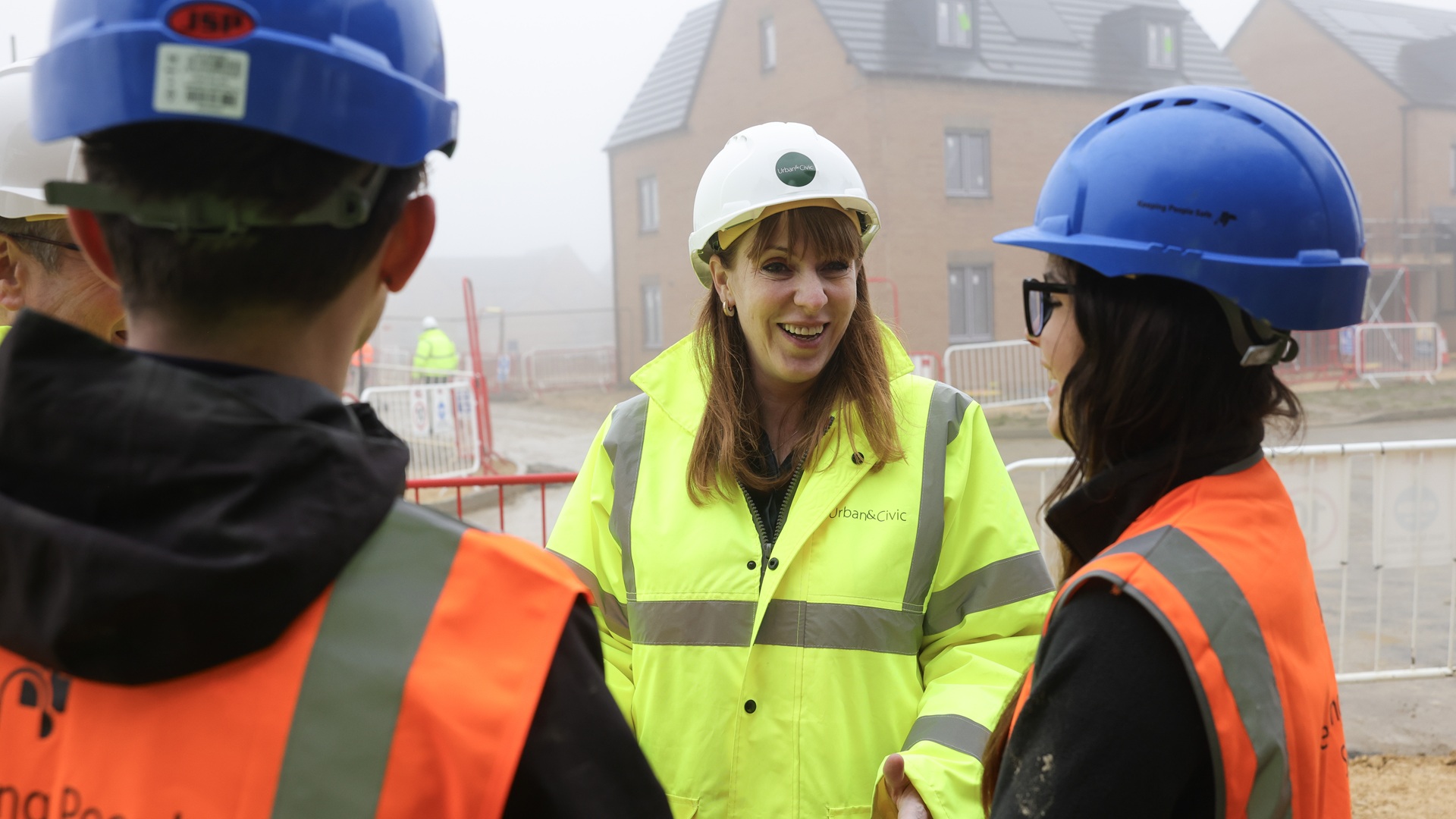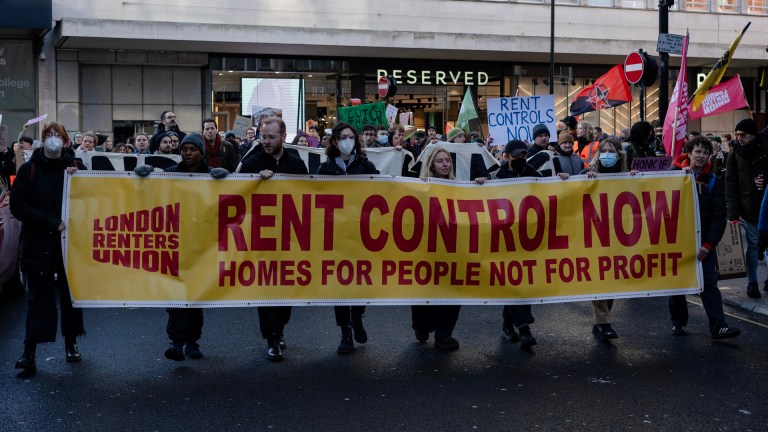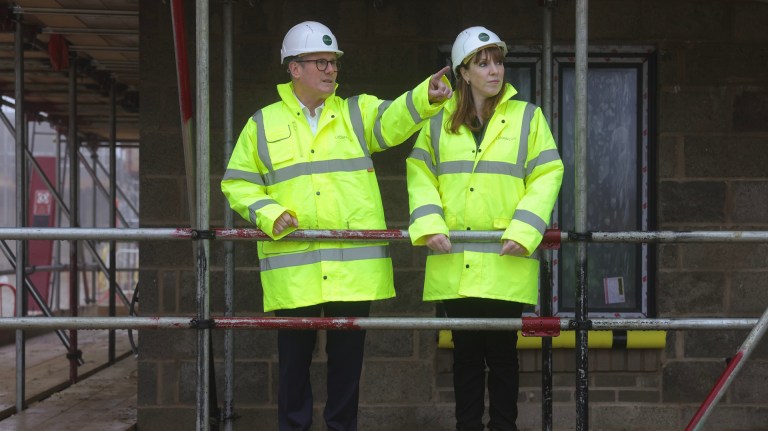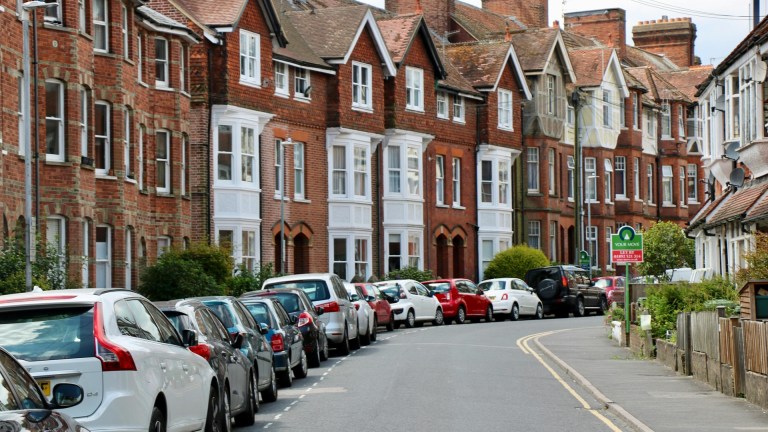“The scale of this poverty crisis should not be underestimated. It will take continual and considerable political focus to fix it, as well as collaboration with business and third-sector organisations like Big Issue. But I hope this signals a genuine change in how we approach the problem of homelessness and result in truly sustainable solutions, and I look forward to seeing a clear, detailed strategy for exactly how these homeless prevention measures will reach those that need them.”
How much is the Labour government spending on homelessness?
The government has made a series of financial promises after inheriting surging homelessness from the Conservatives, who failed in a bid to end rough sleeping while in power.
As well as pledging to build 1.5 million homes, chancellor Rachel Reeves promised £233m extra funding to tackle homelessness and rough sleeping in the autumn budget.
Then Rayner announced an extra £10m to help support rough sleepers through the cold winter months after she had recently chaired the first meeting of the cross-government unit dedicated to tackling homelessness.
The latest announcement puts funding for homelessness at almost a billion pounds in 2025-26, the government said.
The money will be used to target prevention to stop people from falling into homelessness in the first place and address the growing use of B&Bs and temporary accommodation.
The government said the cash will also streamline funding structures to make it easier for councils to spend into services, including Housing First.
Under the plans, over £633m will be made available under the homelessness prevention grant – up £192m on spending in 2024-25 – to help councils prevent homelessness and provide temporary accommodation for families made homeless.
A further £185.6m will be allocated to the rough sleeping prevention and recovery grant, which will allow councils to better prioritise when providing warm beds and shelter for people facing rough sleeping.
A total of £37m will cover ongoing support costs for rough sleepers moving into long-term accommodation through the rough sleeping accommodation programme while £58.7m through the rough sleeping drug and alcohol treatment grant.
The £10m changing futures programme will offer long-term support for adults experiencing multiple disadvantages, including combinations of homelessness, substance misuse, mental health and domestic abuse.
A further £7.6m in sector support grants will bolster voluntary sector staffing, including for StreetLink, which allows members of the public to signpost rough sleepers who need support to services.
Meanwhile, £5m is set to be spent on emergency accommodation recovery pilots which will see 20 local councils with the highest use of B&Bs for homeless families put in place specialised plans to reduce reliance on unsuitable accommodation.
Housing secretary Rayner said: “Too many people have been failed by the system time and again. 160,000 children face spending this Christmas without a stable place to call home. I am determined to break the cycle of spiralling homelessness and get back on track to ending it for good.
“This largest-ever investment marks a turning point, giving councils the tools they need to act quickly and put in place support for people to tackle, reduce and prevent homelessness. It’s time to turn the tide.
“This historic funding comes alongside our work developing a cross-government strategy back on track to end homelessness, pulling every lever of the state, to ensure that we deliver not just sticking plasters but a long-term plan.”
The government has also promised to develop a homelessness strategy after a National Audit Office report in July warned there was no overarching plan to tackle homelessness.
The independent watchdog also found that homelessness is set to increase before things start to turn around.
The combination of a worsening housing crisis, inadequate benefits – including frozen local housing allowance rates – and a number of other drivers are seeing more people experiencing homelessness than frontline charities and other organisations can keep up with.
The crisis has pushed both homelessness services and local authority finances to “breaking point”.
Figures released this week by Homeless Link, the membership organisation for frontline homelessness organisations, showed the sector is in a “precarious state”.
Homeless Link found seven in 10 accommodation services and two-thirds of day centres saw their funding decrease or stay the same in the last year against a backdrop of high inflation.
Meanwhile, the number of accommodation services has fallen by 30% over the last decade, bed spaces have fallen by 18% and there are now a fifth fewer day centres than in 2013.
Furthermore, 41% of accommodation providers and 33% of day centres reported that they risk service closures due to rising costs, and 36% of accommodation providers stated they have already reduced their provision.
Rick Henderson, chief executive of Homeless Link, said: “The homelessness system is in a precarious state, as reduced funding has led to service cutbacks and closures at the same time as all types of homelessness are at an all-time high.”
In reaction to the government’s latest funding announcement, Crisis chief executive, Matt Downie said: “With homelessness at record levels, we’re delighted to see the government taking action to ensure councils have the necessary funding and the ability to use innovative approaches to tackle this crisis.
“Through our services, we see the devastating impact being without a safe home has on people’s health, relationships and life chances. No one should have to spend their nights moving between night buses and no child should grow up in a B&B with nowhere to play or do their homework.”
Crisis previously reported that the rising use of temporary accommodation cost councils £2.3bn last year.
Several councils have warned about the prospect of effective bankruptcy due to the homelessness crisis in the last year.
Councillor Adam Hug, Local Government Association housing spokesperson, said the new funding will help councils face the challenge of rising homelessness.
“Homelessness is one the biggest and most urgent pressures facing councils as more and more people are turning to their local council for support,” said cllr Hug.
“A record number of households are in temporary accommodation – this represents a personal tragedy for each one, as well as a significant cost for councils struggling to source temporary accommodation.
“Preventing people from becoming homeless in the first place is both humane and cost-effective. The new funding announced today will be a great help to councils as they seek to end homelessness, and will help to relieve some of the financial burden they are under.”
Do you have a story to tell or opinions to share about this? Get in touch and tell us more. This Christmas, you can make a lasting change on a vendor’s life. Buy a magazine from your local vendor in the street every week. If you can’t reach them, buy a Vendor Support Kit.









